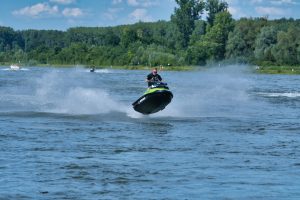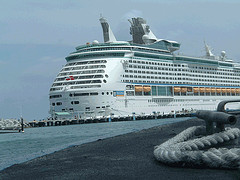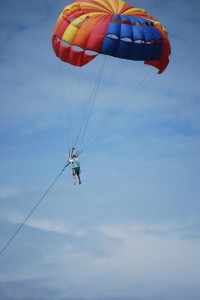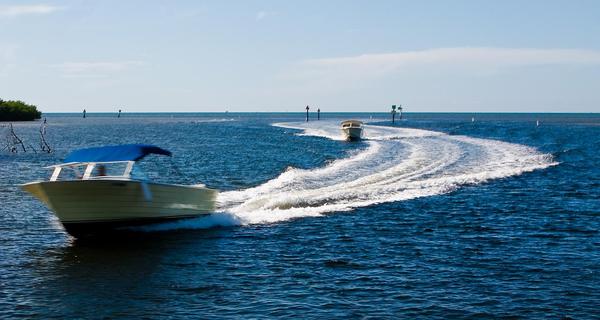The National Transportation Safety Board released its preliminary report Thursday on the investigation into the El Faro tragedy.
According to their findings, the U.S. Coast Guard received distress alerts from the 737 foot cargo ship on October 1 around 7:15 a.m.
The ship was 36 nautical miles northeast of Acklins and Crooked Islands, Bahamas, and close to the eye of Hurricane Joaquin.
The ship was en route from Jacksonville to San Juan, Puerto Rico with a cargo of containers and vehicles.
According to the NTSB report, just a few minutes before the distress alerts, the El Faro master called TOTE Maritime’s designated person ashore and reported the ship was experiencing some flooding. He said the crew had controlled the flooding but the ship was listing at 15 degrees and lost propulsion.
The Coast Guard and TOTE were unable to reestablish communication with the ship. Of the 33 crew members on the Jacksonville-based ship, 28 were U.S. citizens and five were from Poland.
The Coast Guard deployed helicopters and search vessels to the ship’s last known position, but the search was halted due to hurricane force conditions.
The report stated that on Sunday, October 4, a damaged lifeboat, two damaged liferafts, and a deceased crewmember wearing an immersion suit were found. The next day, a debris field and oil slick were found, and the Coast Guard determined the El Faro was lost and declared the event a major marine casualty.
The Coast Guard suspended the unsuccessful search for survivors at sundown on Wednesday, October 7.
On Tuesday, October 6, the National Transportation Safety Board launched a full team to Jacksonville to lead the federal investigation in cooperation with the Coast Guard, the American Bureau of Shipping, and TOTE as parties.
The U.S. Navy Salvage and Diving division of the Naval Seas Systems Command was contracted to locate the sunken ship, assist in the sea floor documentation of the wreckage, and recover the voyage data recorder, according to reports.
Working on board cargo ships like the El Faro can be extremely dangerous. While out to sea, crew members put their lives on the line to ensure that the goods necessary for our daily lives arrive to where they need to be on time. They face dangerous weather conditions and the constant risk of being thrown overboard.
At Whittel & Melton, our Maritime Accident Lawyers are experienced and trained to represent injured seamen and their families, as well as the families of those who have lost loved ones on cargo vessels, like the El Faro. We will represent victims nationwide in maritime personal injury and wrongful death lawsuits.
In many cases, the surviving family members of those who are killed at sea are able to obtain wrongful death compensation under the Jones Act, Death on the High Seas Act, or Admiralty Law.
Continue reading
 Florida Personal Injury Lawyers Blog
Florida Personal Injury Lawyers Blog





